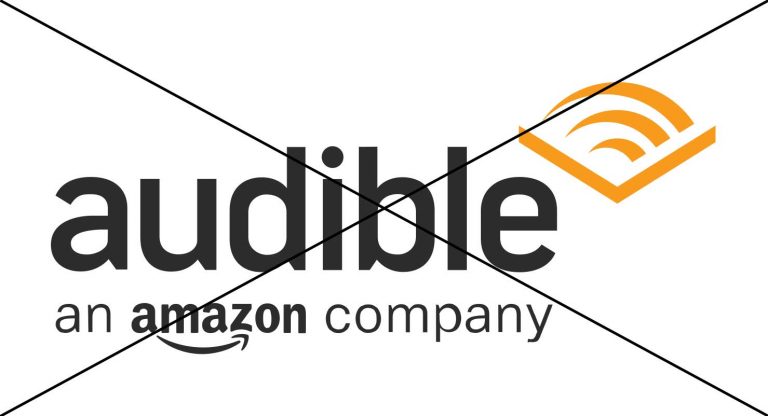How Much Home Can I Afford?
When you’re shopping for a home, one of the very first questions you’ll ask yourself is, “How much home can I afford?” I’ll answer that question for you in this article using the information lenders use to qualify you for a loan amount as well as some recommendations based upon my own experience buying homes.
Debt to Income Ratio Not to Exceed 50%
A person’s debt to income ratio (DTI) essentially puts a top threshold on the amount they can expect to receive for a home loan. The highest DTI allowable among all types of loans is 50%. The quickest way to calculate an estimate of the maximum price of the home you can afford is to add up all your debts (everything you are obligated to pay to creditors each month, including what you anticipate paying for your mortgage) and divide that number by your pre-tax monthly income. That number cannot exceed 0.5, meaning that your debt obligations cannot exceed 50% of your income.
More often than not, lenders will not allow you to exceed 43% with your DTI ratio.
Calculating How Much Home You Can Afford
Here is a common scenario.
Jeff’s pre-tax household income is $60,000 per year, which equates to $5,000 per month.
Jeff can get an interest rate of 5% on a 30-year fixed loan.
He has $10,000 set aside for a down payment on his new home.
Jeff owes $1,000 per month to debts (car payment, credit card, student loan, etc.)
The maximum monthly payment he can afford is $1,500. The calculation would be as follows:
($1,500 + $1,000) / $5,000 = 0.5
The $1,500 figure is comprised of estimates of principal + interest of $1,134 plus an estimate of $366 in property tax, mortgage insurance, and homeowners insurance)
Based on this information, Jeff can afford a home up to $220,000.
Jeff could increase how much home he can afford by paying off his debts, increasing his income, or finding a lower interest rate on his loan.
There are lots of online loan payment calculator tools online that allow you to estimate your monthly mortgage payment based information you enter about your income, debts, down payment, and in which state you’re planning to buy your home.
How Much You Qualify For Versus How Much You Can Afford
Commonly asked question that are very much related to how much you can afford include: “How much of a loan do I qualify for?” or “How much can I borrow to buy a home?” While many people would say that these questions are all the same, I would argue that there is a different.
In my opinion, the answers to how much you technically qualify to borrow typically represent a higher dollar amount than what you should consider to be the loan amount you can safely afford.
I’ll explain why that is after I discuss how to determine how much home you qualify for. I will also discuss some scenarios that will help you estimate what price range you can safely shop for a home in.
How Much Home Do I Qualify For?
How much home you qualify for is calculated by potential lenders using a few different factors that allow them to determine the total amount they can lend you while minimizing the risk of you defaulting (not paying your monthly mortgage) on your loan.
When you’re shopping for a home, you typically start out by getting prequalified for a home loan. In the prequalification process, the banker or loan officer will ask you about your income level, your employment history, and how much debt you have. Lenders often will pull a credit report using your social security number, which allows them to evaluate your creditworthiness (essentially how well you’ve historically paid your bills) based on your FICO score.
The formula for determining how much home you qualify for depends on these factors:
- Type of Loan – Some types of home loans (FHA, USDA, VA) are subsidized in one way or another by the government, which means that some of the normal costs of the loan are offset, giving you the opportunity to borrow more than you could without these programs. You can determine whether you qualify for one of these types of loans by speaking with a lender.
- Your Monthly Income – The higher your income, the more capable you are of paying a larger monthly mortgage payment, which allows you to buy a more expensive home.
- Your Employment History – A longer employment history helps lenders feel more confident that your monthly income is consistent, and will remain at least the amount that you’re currently earning. Having a longer employment history (two years at the same job or in the same industry) will typically mean that you qualify for a larger loan than someone whose employment history is less than two years.
- Your Credit Rating – Having a higher credit rating tells lenders that you are more trustworthy, which normally increases the amount of loan you qualify for. Your credit rating is calculated by the credit bureaus (Experian, TransUnion, and Equifax) using data gathered from various accounts you’ve had with everything from cell phones, utilities, credit cards, and loans.
- Your Personal Savings and Down Payment Amount – How much you have in savings, and how much of that you have available to use as a down payment on your home affect the amount you’ll pay monthly on your mortgage. Having a bigger down payment will allow you to secure a larger loan.
- Your Debt to Income Ratio – This ratio is also called the Back-end Ratio, and includes the monthly payment obligation loan you’re applying for as explained in the example above.
- Loan Interest Rates – These vary from lender to lender and depend upon the type of loan (30-year fixed, 15-year fixed, 5-year ARM) you’re getting, but they are all tied back to the prime interest rate that’s set by the US Federal Reserve. Lenders add their margins on top of the Prime Rate.
How Murphy’s Law Factors Into How Much Home You Can Afford
Murphy’s Law essentially states something to the effect that “whatever can go wrong, will go wrong.” If you make the decision to purchase a home that is at the very top threshold of what you qualify for, expecting that everything is going to flow perfectly for you, including your ability to be completely financially disciplined on all possible fronts, you may be in for an abrupt introduction to this law. If you end up in that situation, you may end up being one of those poor souls calling into the Dave Ramsey show pleading for help.
The loan qualification process doesn’t consider all of the other things going on in your life that could affect you ability to pay your monthly mortgage. If you’re a parent, you likely know that as kids get older, they often become more expensive to raise. Sports, music, school, braces, and other expenses will likely draw against your available funds for paying a mortgage. In any number of other circumstances, there are always contingencies that may affect your ability to keep up with a mortgage payment. Being conservative and staying well under the amount that represents how much house you’re qualified for by lending institutions will bode much better for you.
The lesson to be learned is this: how much home you can afford should be determined in light of your long term financial plan, and should recognize the possibility of loss of employment, unexpected expenses, and the fact that your financial future can be affected by a lot of unexpected.
My Experience with Determining How Much Home Loan is Affordable
When my wife and I were preparing to graduate from college, we decided it was time to buy a home. We called our local credit union to find out how much we qualified for. Our income, generated by a couple internet businesses we had been building over the previous two years, was just over $70,000. We had no debt, and we had planned to pay between $10,000 and $20,000 as a down payment to purchase our new home. Our combined credit was pretty good, although we didn’t have a very long credit history. Our score was in the low 700s.
The loan officer we talked to asked us the standard prequalification questions about our income, debt, and employment history. Then he came back with a prequalification of $425,000.
We were blown away. That amount seemed like way too much for a young couple to be spending on a home. Our monthly payment on a home that price would have been over $2,000 per month. That felt exorbitant to us, and we didn’t want to be stressed out by what felt like a digging a hole to start each month to buy a house that was much more than what we needed. We were expecting a baby, and we were uncertain about what costs we would incur for as new parents. Our business tended to be seasonal, and we didn’t want to have the stress associated with feeling “house poor.”
Instead of looking for homes in the $400,000+ price range, we found a home about 15 minutes away from the area we were most interested in. We found a home for under $200,000 located in a more rural, modest neighborhood.
When I look back at that decision, I see a firm layer of financial foundation that has helped us get much further ahead than had we stretched ourselves to the limit and bought something that was in the range of what we technically qualified for.
Within a few years of purchasing that home, we paid it off. The lack of financial stress from our home mortgage allowed us to focus on growing our business, which wasn’t strained by cash flow issues that could have come from having a mortgage payment that could have been twice as much as ours was.
I attribute much of my financial success to the mindset that led me to decide that the amount I could “afford” when I bought my first home was less than half of what the lenders told me I was qualified for.
I highly recommend that approach.







